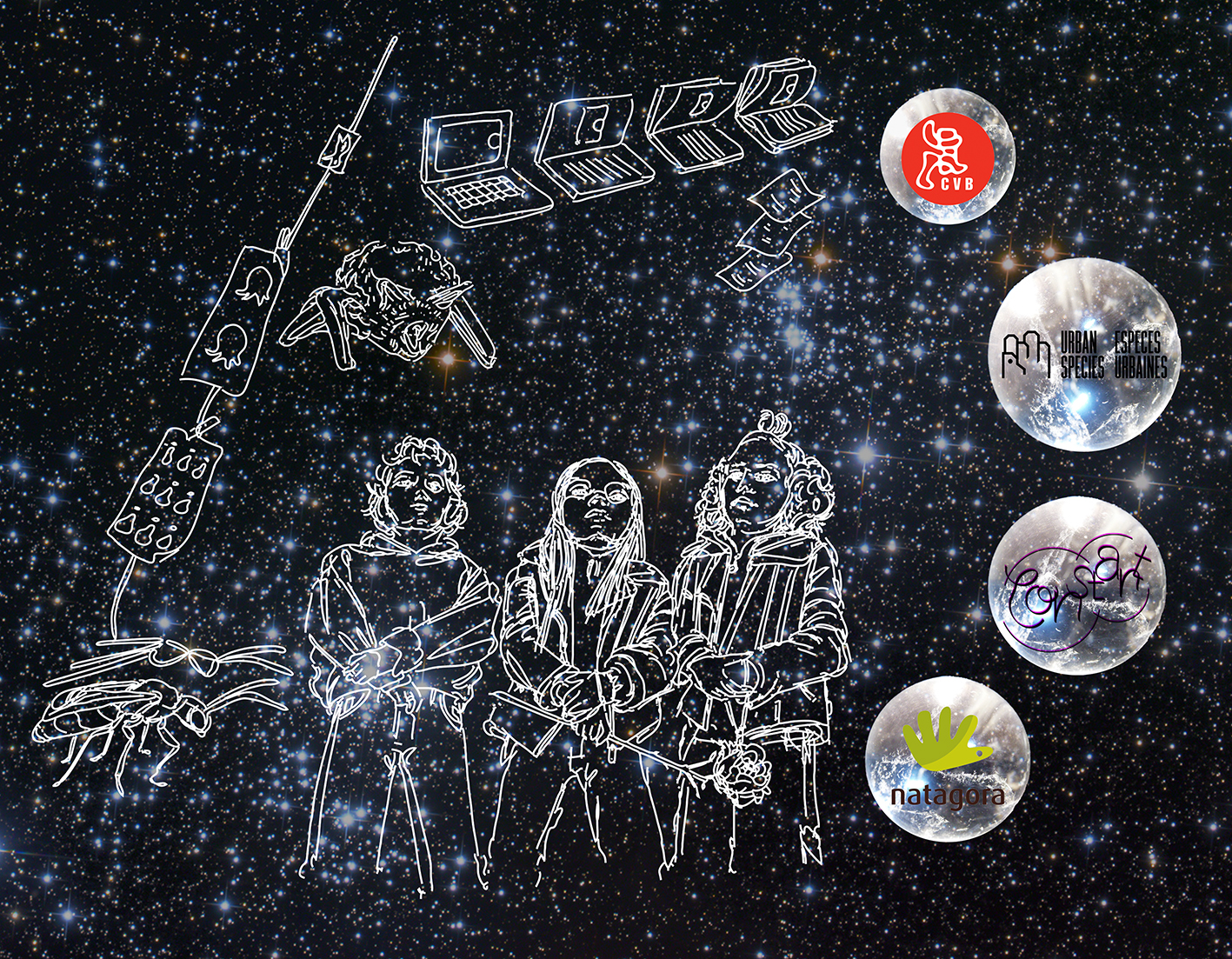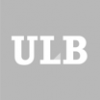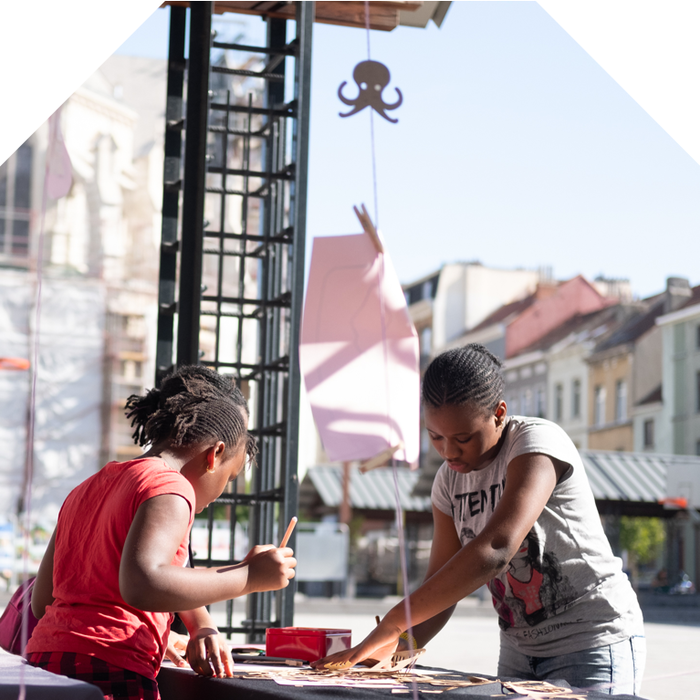SpecXcraft is a research project on the capacity of imagination, using possible futures of Brussels as metaphorical landing sites. Is the future in crisis, or is it a crisis of imagination of the future? SpecXcraft aims to pluralise both the authors of future Brussels scenarios and the ways of generating them by cultivating forms of radically speculative, situated, inventive, pluralised and responsible imagination.

Funded by the Innoviris co-creation programme, Urban Species collaborates with CVB (Centre Vidéo de Bruxelles), Natagora and Constant, taking each of the partners' diverse audiences as a point of departure:
- CVB. Can Brussels learn from a group of youth from a “disadvantaged neighbourhood”, regulars in prison, victims of racism, excluded from the labour market, and from their ways of dealing with change, crisis and death?
- Natagora. Can we make ourselves available to voices in the city that only sound silently, like whispers uttered in a vacuum, as they lack air in the form of credibility? Do amateur naturalists and their practices of observing species on Brussels’ wastelands weave other ways of considering the living, of making their existence palpable for themselves?
- Constant Can we shift our expectations towards technology, breaking up dreams of utopian technologies made to solve humanity's problems and rather working towards a basic understanding of particular devices for everyone?
Starting from these diverse concerns and sensitivities and the current practices, tools and devices that these stakeholder groups employ, we will co-create a set of speculative stories, objects and interventions in various shapes and forms. At the core of the method will be collaborative crafting, as we hypothesise that physical, tangible objects will aid and spark a diversity of (often underrepresented) audiences to imagine alternative futures. The ultimate aim of SpecXcraft, thereby, is to improve the resilience of Brussels and its inhabitants through such increased capacity to imagine.
“Before we can design better futures for all, we have to build a society-wide capacity to envision and design alternatives. This requires cultivating a multiple futures perspective while accounting for the multiple perspectives that already exist in the present. Science fiction and futures based narratives may help people develop a superstructure, and serve as a strategic precursor to widespread change" (Zaïdi, L. (2019): 21-2)




